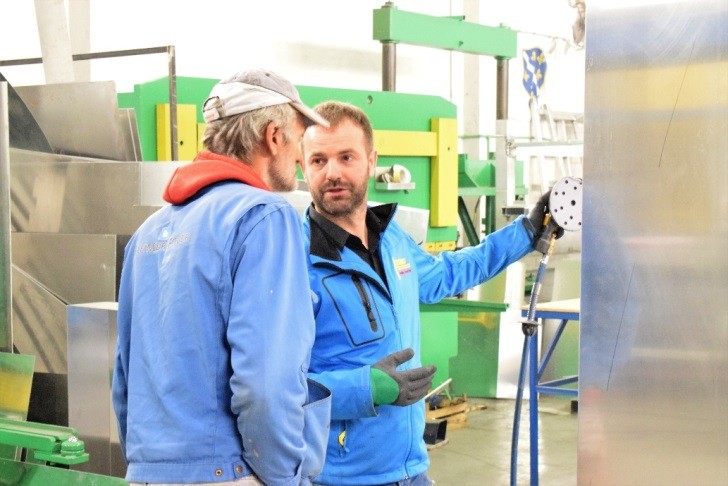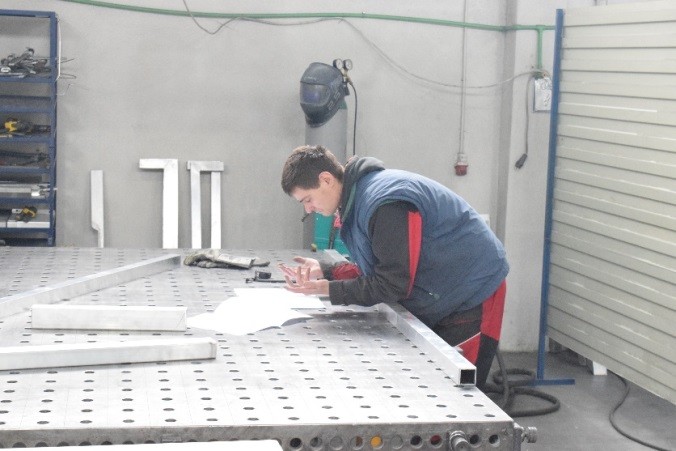Speeches Shim

Suad Beslic has returned from Germany to his home country of Bosnia and Herzegovina (BiH) to start a local company that manufactures fire trucks for export to Germany and other global markets. With his return, he has brought back hope for young people in the small Bosnian town of Zivinice.
Born in 1974 in the village of Meskovici in Kalesija municipality, Beslic was a soldier fighting in the Bosnian war in 1994 when he was heavily wounded and evacuated to Germany for treatment. Following a long and painful recovery, Beslic stayed for more than two decades, finishing his education and, eventually, building a very successful career.
An able innovator with a creative mind, Beslic became one of the top designers at German company Lentner, a leading manufacturer of specialized firefighting and rescue vehicles. His ideas and original concepts resulted in a unique, one-size-fits-all design that replaced prior specialized designs for different fire truck constructions. By engaging with workers on the floor, he created a number of innovations that simplified production.
His career in Germany was thriving, and he was content with his life abroad. But a single encounter in 2017 changed all that.
“The turning point for me was the tears of a mother I met in Kalesija,” Beslic said. “I was hiring workers in Bosnia for my employer in Germany, and the mother of one of these young men came to see her son off to Germany. ‘If my child leaves, will his wife and my grandchild go away too?’ she asked, all teared up. Her son was very young, and the idea that, in her eyes, I was taking her whole family away from their homeland haunted me the entire trip back home to Munich, where I was living at the time.
“I kept thinking that, after all we went through during the war, we were once again losing our young. I went back to my CEO in Germany and I said that I could not do this anymore. I proposed moving part of the production to BiH, and that I return home to run the business to serve as an example for myself and others,” Beslic said. His boss agreed.
In 2017, Beslic set up a company called Suco in Zivinice, a small town in northeast Bosnia, and employed 25 local workers. The employees, whose average age is 21, undergo regular training, both in-house and in Germany, and the firm maintains high labor standards with competitive salaries paid on time, free weekends and 40-hour work weeks.

Armed with his plan to expand and hire more workers, Beslic applied for a grant from USAID’s Diaspora Invest project to purchase modern specialized welding equipment to boost production. The grant is helping Suco hire another 10 workers and bring new direct investment into the firm. Export clients are now lining up to support further expansion.
Beslic hopes his story will encourage and inspire others from the wider diaspora community to invest and bring jobs back to BiH.
“It is really important that we [BiH diaspora] are coming back, that we are working really hard to keep the next generation here by providing hope for the future. Loving your country is more than supporting the national football team. We need to make our own sacrifices. We need to take a step forward,” Beslic said.
Suco is one of 17 small and medium-sized enterprises currently benefiting from the Diaspora Invest project, which facilitates new diaspora investment in Bosnia and Herzegovina, and provides grants and technical assistance to diaspora startups and early-stage firms. The program runs from April 2017 to March 2022.
LINKS

Comment
Make a general inquiry or suggest an improvement.